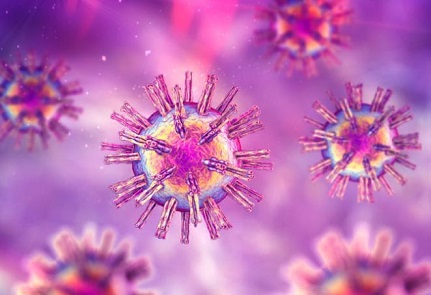Nikhil Prasad Fact checked by:Thailand Medical News Aug 17, 2024 1 year, 3 months, 3 weeks, 5 days, 21 hours, 56 minutes ago
Medical News: Chinese researchers from Southern Medical University-China, Guangdong Medical University, and Hubei University of Science and Technology have made a significant breakthrough in the fight against herpes simplex viruses (HSV-1 and HSV-2). The study reveals that inhibitors targeting the cystic fibrosis transmembrane conductance regulator (CFTR) show promising antiviral activity. This
Medical News report explores these findings, making complex scientific data accessible to everyone.
 CFTR inhibitors show promise against Herpes HSV-1 and HSV-2 infections
Understanding Herpes Simplex Viruses
CFTR inhibitors show promise against Herpes HSV-1 and HSV-2 infections
Understanding Herpes Simplex Viruses
Herpes simplex viruses (HSV-1 and HSV-2) are widespread human pathogens responsible for various infections, including cold sores and genital herpes. Despite their prevalence, treatment options remain limited, and many people suffer from recurrent outbreaks. Understanding how these viruses infect cells is crucial to developing better treatments.
The Role of CFTR in Viral Infections
CFTR is a protein that acts as a channel for chloride ions in cells, playing a vital role in maintaining fluid balance across cell membranes. Recent research has highlighted the role of CFTR in various viral infections, including SARS-CoV-2, the virus responsible for COVID-19. However, its role in herpes simplex virus infections had not been previously explored.
This research explored how CFTR inhibitors, such as Glyh-101, CFTRi-172, and IOWH-032, can suppress the replication of HSV-1 and HSV-2 in human epithelial cells and protect mice from infection.
Key Findings from the Study:
The researchers conducted a series of experiments to test the antiviral effects of CFTR inhibitors on HSV-1 and HSV-2 infections. The key findings are as follows:
-Suppression of Viral Replication: The study showed that CFTR inhibitors could significantly reduce the replication of both HSV-1 and HSV-2 in human HaCaT keratinocyte cells. When cells were treated with different concentrations of Glyh-101, CFTRi-172, and IOWH-032, the production of viral particles was notably suppressed.
-Protection in Animal Models: The researchers also tested the antiviral effects of CFTR inhibitors in mice infected with HSV-1 and HSV-2. Mice treated with Glyh-101 showed significant protection against infection, with reduced disease severity and viral load compared to untreated mice.
-Mechanism of Action: The study found that HSV infections activated the adenylyl cyclase (AC) - cAMP signaling pathway, which in turn activated CFTR channels. This activation led to decreased intracellular chloride levels, facilitating viral replication. By inhibiting CFTR activity, the researchers were able to restore chloride levels and reduce viral replication.
-Impact on SGK1 Activity: SGK1, a protein kinase sensitive to chloride ions, was found to be upregulated in HSV-infected
cells. The CFTR inhibitors effectively reduced SGK1 activity, further contributing to their antiviral effects.
Implications for Future Treatment
The discovery that CFTR inhibitors can suppress HSV-1 and HSV-2 infections opens up new avenues for treating herpes infections. Currently, acyclovir (ACV) is the standard treatment for herpes, but it is not always effective, and some strains of the virus have developed resistance. The study suggests that CFTR inhibitors could be developed as a novel treatment option, either alone or in combination with existing therapies like acyclovir.
However, while the results are promising, the researchers caution that more studies are needed to fully understand the safety and efficacy of CFTR inhibitors in humans. The study conducted in mice provides a solid foundation, but clinical trials will be necessary to determine if these findings can be translated into effective treatments for people.
Conclusion:
This study provides exciting evidence that CFTR inhibitors could play a crucial role in combating herpes simplex virus infections. By targeting the CFTR channels and disrupting the virus's ability to replicate, these inhibitors offer a potential new treatment pathway for those suffering from HSV-1 and HSV-2 infections. The findings underscore the importance of continued research in this area, particularly in understanding the safety and effectiveness of these inhibitors in human trials.
The study findings were published in the peer-reviewed journal: Viruses.
https://www.mdpi.com/1999-4915/16/8/1308
For the latest on Herpes research, keep on logging to Thailand
Medical News.
Read Also:
https://www.thailandmedical.news/news/new-treatment-strategy-shows-promise-in-combatting-herpes-simplex-virus-type-2
https://www.thailandmedical.news/news/herpes-virus-manipulates-autophagy-in-brain-cells-for-survival
